In Zadie Smith’s alluring novel, “The Fraud,” the question of legitimacy and deception looms large, prompting readers to ponder the extent to which we all might be guilty of wearing masks in our daily lives. Set against a backdrop of complex relationships and hidden truths, the novel brings together an assortment of characters who grapple with the concept of being genuine in a world rife with illusion.
At the heart of the story is the multifaced nature of people. Mrs. Eliza Touchet, a central character, hides her own individuality. As a woman living in Victorian Britain with little agency, she uses her wits as a mean to branch outside of her cage. We see this particularly when she meets a key player at the heart of this story, Andrew Bogle, the servant of the Tichbornes, formerly enslaved in a Jamaican plantation.
The entire novel hinges around the controversy surrounding the Tichborne Claimant, a figure who may or may not be who he claims to be. The characters’ debates about the genuineness of the Claimant’s identity highlight the fragility of truth and the ease with which deceit can take root.
MEET THE AUTHOR
Zadie Smith
Zadie Smith, a prominent figure in contemporary British literature, boasts a diverse literary portfolio encompassing novels, essays, and short stories. Her literary journey took off with the resounding success of her debut novel, “White Teeth” (2000), which swiftly ascended the best-seller charts and garnered a slew of prestigious awards.
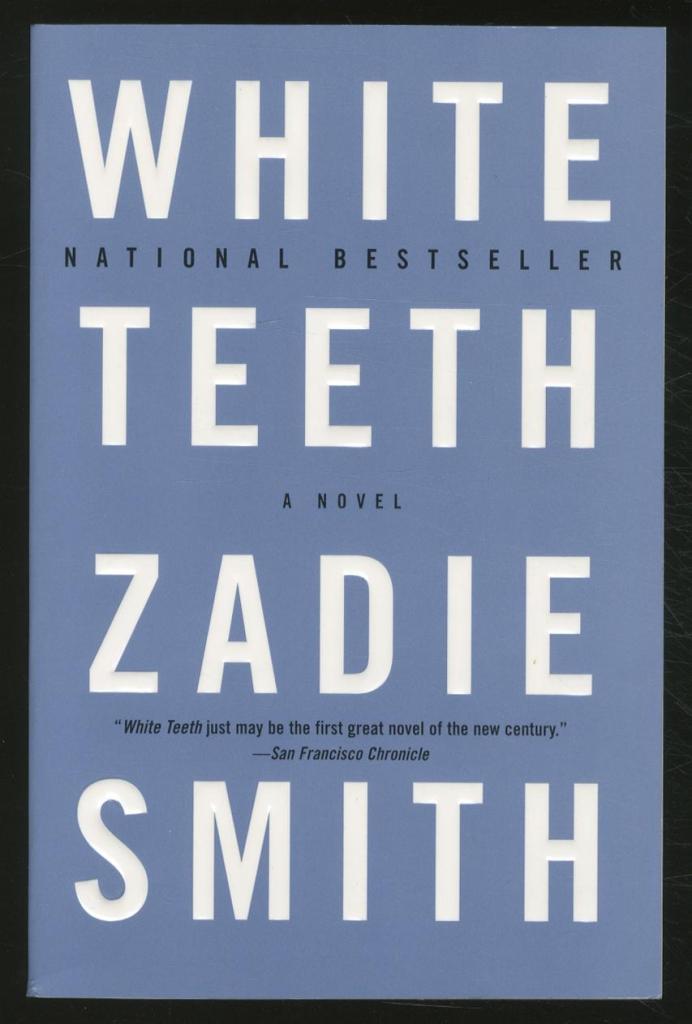

Notably, she joined the ranks of the Creative Writing faculty at New York University in September 2010, securing a tenured professorship.
Smith’s literary repertoire extends beyond “White Teeth” to include a collection of compelling novels such as “The Autograph Man” (2002), “On Beauty” (2005), “NW” (2012), and “Swing Time” (2016). In addition to her fiction, she has curated two collections of essays, namely “Changing My Mind” (2001) and “Feel Free” (2010).
Acknowledged for her remarkable literary contributions, Smith has clinched numerous accolades. Her impressive list of awards includes the Whitbread First Novel Award, the Guardian First Book Award, the Commonwealth Writers Prize, the Orange Prize for Fiction, and the James Tait Black Memorial Prize. She holds the distinction of being a Fellow of the Royal Society of Literature and a Member of the American Academy of Arts and Letters. “The Fraud” is the first historical fiction written by Zadie Smith.
What was the Tichborne Claimant case?
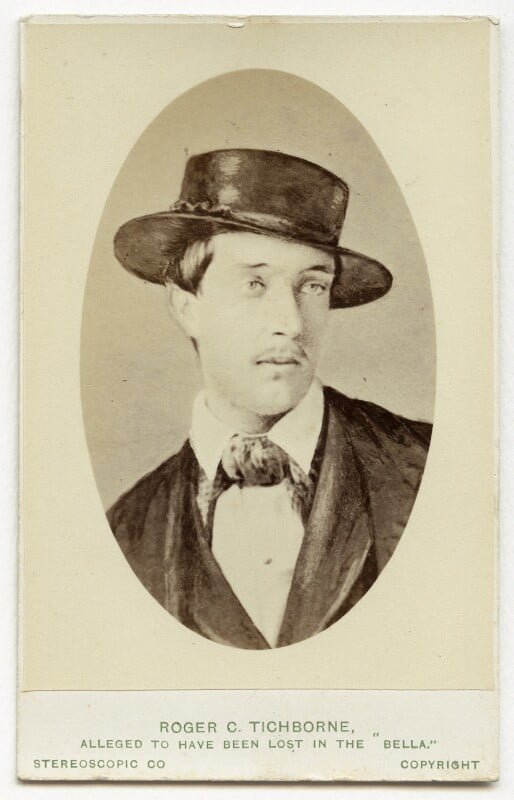
The Tichborne Claimant case captivated the Victorian imagination unlike any other event. Sir Roger Tichborne, the presumed heir to the Tichborne estate, had been declared dead in 1854 following a shipwreck while returning from Chile. However, in 1866, he astonishingly resurfaced, working as a butcher in Wagga Wagga, Australia, and made his way to England to assert his right to the inheritance. When his legal claim collapsed, revealing him as Arthur Orton from Wapping, he faced a perjury trial. Andrew Bogle, a former slave hailing from Jamaica and previously in the service of Roger Tichborne's uncle, Sir Edward Doughty Tichborne, played a unique role in this saga. After retiring, he immigrated to Sydney, Australia, where he became entangled in the Arthur Orton story. Given his prior association with the Tichborne family, Bogle's testimony held significant importance, making him one of the Claimant's primary supporters and a crucial witness during the trial. Accompanying the Claimant to England, both he and his son Henry stood by his side as unwavering companions and advocates. Public opinion, then as well as now, remained sharply divided between those who viewed Bogle as an honest elderly man deceived by the Claimant and those who suspected he might have been complicit in a scheme to defraud the Tichborne estate.
Exploring the role of Andrew Bogle in the Tichborne Claimant’s story
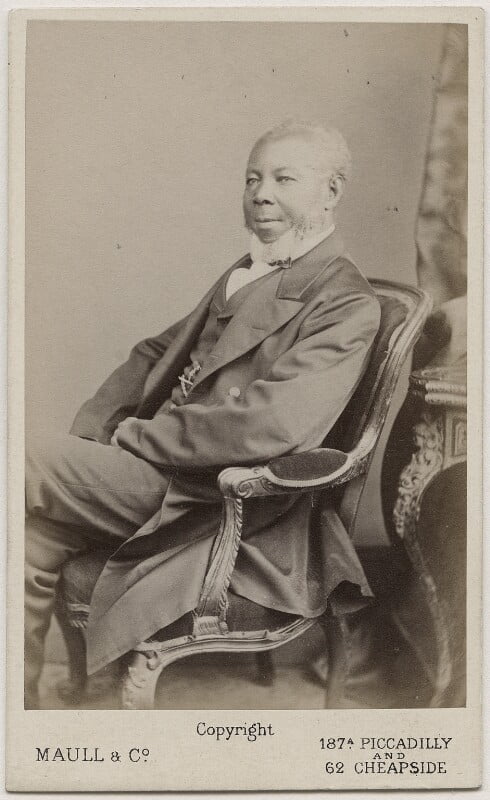
It is clear that Bogle has a significant role in this falsehood as the main witness, and yet – as Smith told us at the Queen’s Park Book Festival – the fact that Bogle has such prominence in real-life court transcripts, underscores the rarity of his position during that period as a Black man addressing the judiciary. Smith says that it is not our place to make a judgement over the decisions he made. At the end of the day, his duplicity was a matter of survival.
“‘I imagine the Tichbornes’ old negro is feeding him the information in exchange for payment.'”
William Ainsworth
Bogle is shrouded in mystery and self-doubt, muses, “My life has had many parts… my story is not what it should be. I should have been a great man.” This introspective exploration prompts readers to reflect on their own lives and question the authenticity of their own narratives. Are we all living lives that fall short of our potential, haunted by the ghosts of unfulfilled dreams and untapped potential? It could also be the case that Bogle is also deceiving himself into thinking he is more than he is – much like the Tichborne Claimant.
“‘I come from great men, on my father’s side. But I hardly remember my father and can only speak of what Myra told me. Myra was my mother, and much of what I know of my father’s life she gave to me.'”
Andrew BogLE
Bogle’s ancestral roots in the Caribbean and his father’s subsequent kidnapping reveal the complex interplay of personhood and subterfuge. As he recounts his past, we are introduced to a world of traditions, and a sense of belonging that was stolen from him. In this situation, his tale of being born into slavery and transported from Jamaica echoes the theme of fraudulent identities forced upon individuals through historical injustices.
Read: Queen’s Park Book Festival 2023: Zadie Smith, class and conflict
As the novel unfolds, he grapples with his own sense of self-worth and questions whether he is living up to the legacy of his ancestors. His journey, filled with hardship and self-discovery, invites readers to consider their own struggles with selfhood and concealing ones real self in society.
The layers of deception in “The Fraud” by Zadie Smith
Like Bogle, Eliza calls herself a writer when she first meets him, despite never having worked in that capacity. However, both strive to live a life that isn’t limited to social expectations at the time.
“‘I – well, no. I am a writer,’ improvised Mrs Touchet, colour flooding her cheeks. She had hoped not to stumble into a direct lie.”
Mrs. Eliza Touchet
The character of Mrs. Touchet, who has endured a tumultuous marriage and the loss of her child, grapples with her own validity and moral standing. In this case, she questions her right to claim her child back from her estranged husband, pondering whether her actions contributed to his descent into alcoholism.
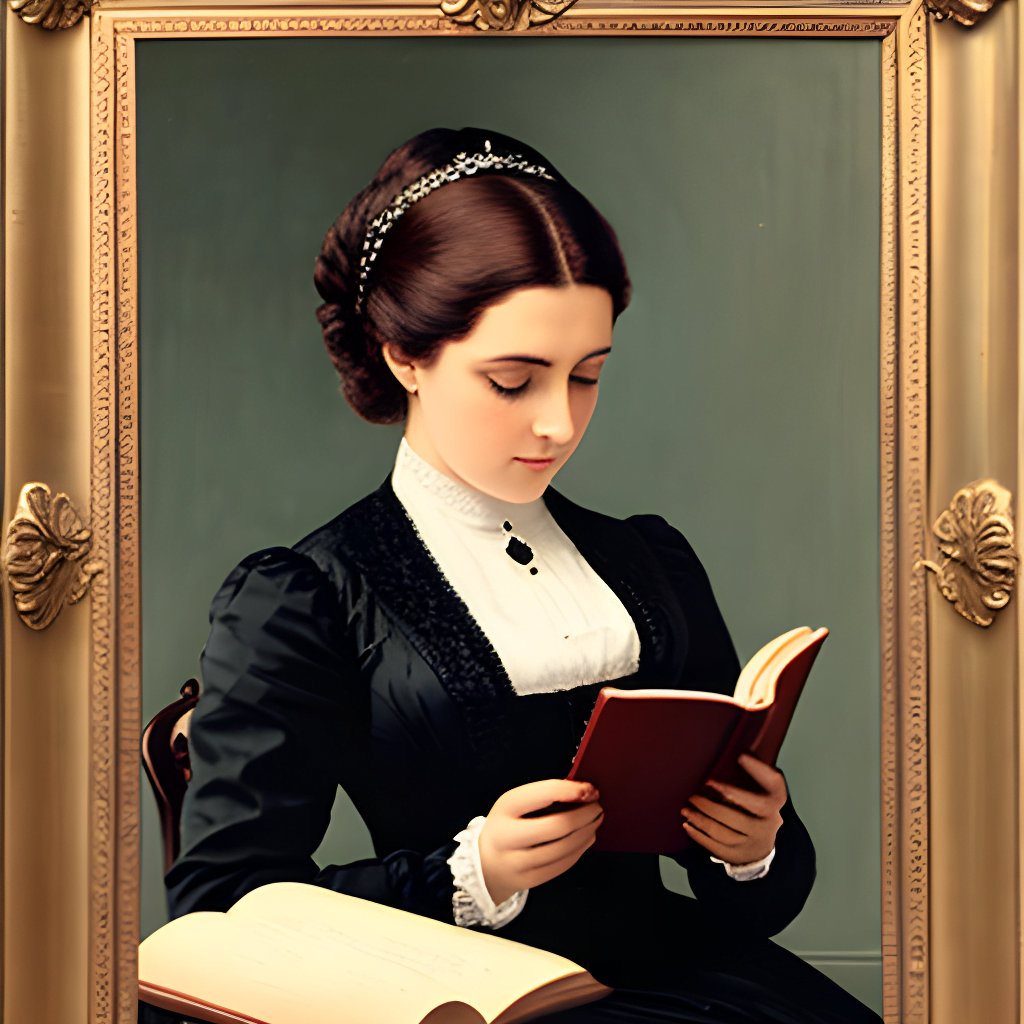
We see also characters like Fanny, Emily, and James embroiled in situations where the line between credibility and fraudulence blurs. Sarah, ie. the ‘new Mrs Ainsworth’, showcases a level of gullibility, believing everyone appears as they seem, while at the same time putting on airs herself. Thinking that the word “natural” is the hallmark of a distinguished speaker, she unsuccessfully aims to disguise her uncouthness and her former life as a maidservant by dropping it into every sentence. As a result, it becomes clear that her pursuit of authenticity is intertwined with her own concealed secrets and desires.
The ever-present question of whether they are true to themselves or merely playing roles in their relationships creates a pervasive sense of uncertainty and unease.
Was William Harrison Ainsworth a fraud?
Another intriguing element of the novel is the discovery of the seventeenth-century dramatist William Aynesworthe’s work, which is presented as a bold act of literary fraud, as Eliza’s cousin is the Victorian novelist William Ainsworth. This twist raises the fascinating question of whether literature itself can be a form of disinformation, as authors create worlds and characters that may or may not reflect their true intentions.
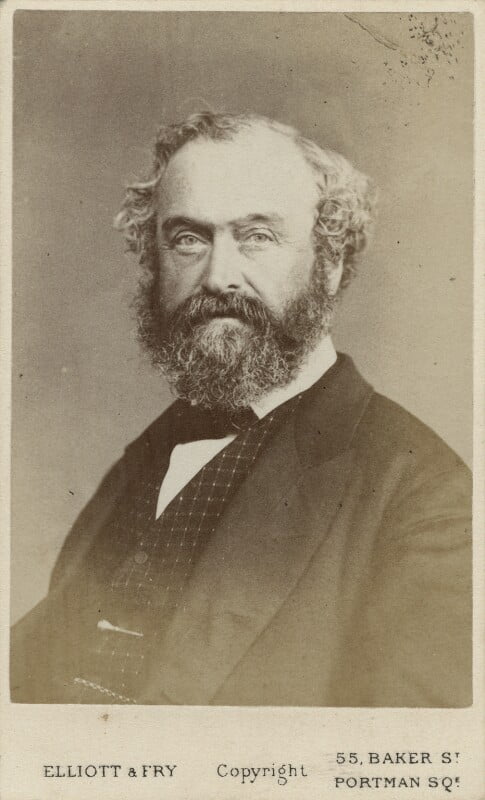
William, who maintains a secret detour to visit Mrs. Touchet in Chesterfield as both his lover and cousin, blurs the lines between fact and fiction in his writing, raising suspicions about his trustworthiness as an author. Hence the possibility that he might be a fraud, with James Crossley as the true author of his extensive works, adds a layer of intrigue to the story.
“Much later in life, Mrs Touchet seriously considered the possibility that her cousin was a fraud and James Crossley the true author of all those thousands upon thousands of words.”
Throughout the book, the theme of dishonesty is also explored through the lens of historical events. For instance, the Christmas Uprising of 1831, a pivotal moment in the tale, serves as a metaphor for the guise of societal order that conceals the underlying turmoil. The uprising’s portrayal in the newspapers and the embellishments of the story reveal how even historical accounts can be tainted by deceit, prompting us to question the fidelity of the narratives we encounter.
Read: The Wager by David Grann on ‘the mutiny that never was’ – review
The novel then takes an intriguing turn with the inclusion of an article titled “The Fraud,” which reports a fictional story of a balloon crossing the Atlantic in record time. This article, authored by Edgar Allan Poe, becomes a meta-commentary on the theme of cheating within the novel itself. William’s concern that he might be a fraud is reflected in the article’s fabrication, blurring the lines between reality and invention.
In the era of fake news, are we all just frauds?
As readers navigate the intricate web of relationships, trickery, and self-reflection in “The Fraud,” they are also prompted to question their own honesty and the roles they play in their lives. In essence, are we all frauds to some extent, hiding our true selves behind carefully constructed façades especially behind our screens? Consequently, Smith’s exploration of this theme challenges us to consider the masks we wear and the integrity we aspire to in our own lives.
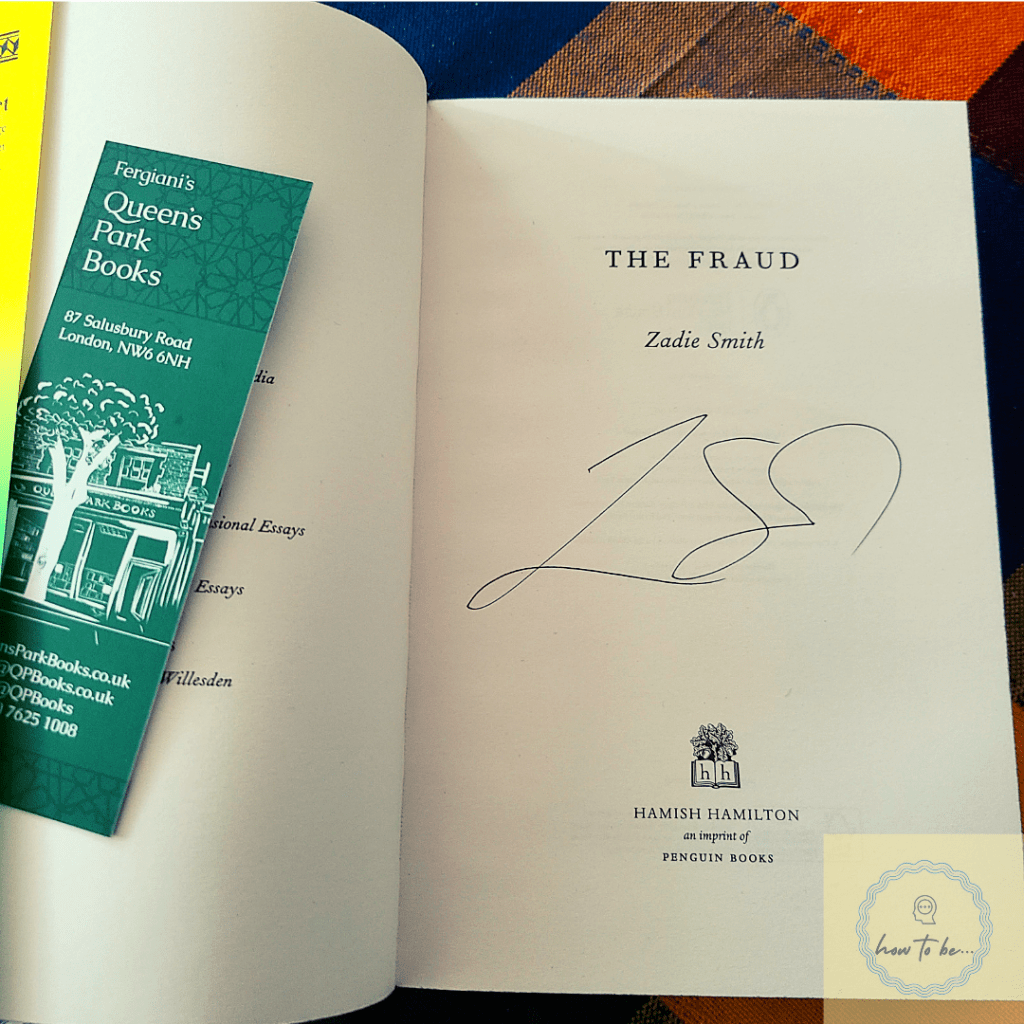
In the end, “The Fraud” serves as a captivating examination of the human condition, where the lines between truth and deception, veracity and fraud, are constantly blurred, leaving us to ponder the complexities of our own existence. What’s more, the book raises the question whether there are some cases where a little white lie can be acceptable, in order to make the best of a bad situation.
[…] Read: The Fraud by Zadie Smith: are we all just imposters? – review […]
[…] Read: The Fraud by Zadie Smith: are we all just imposters? – review […]
[…] England, centred on a mysterious man claiming to be the rightful heir to a lost fortune. We also reviewed Zadie Smith’s The Fraud, discussing the idea of […]
[…] authors Zadie Smith, Naomi Klein, and Paul Murray have been shortlisted for the rebranded Rathbones Folio Prize, now […]
[…] Fraud” by Zadie Smith (Hamish […]